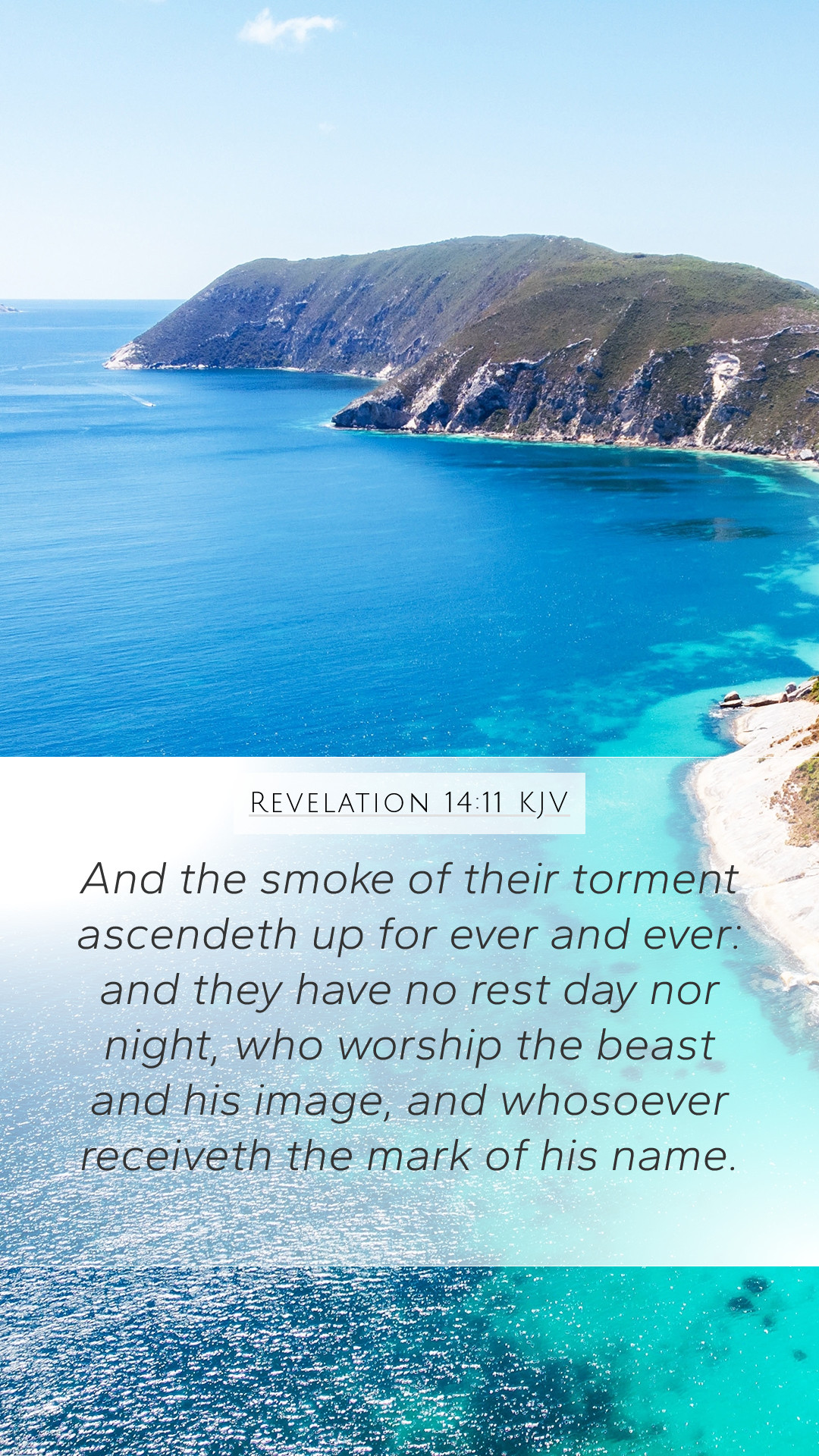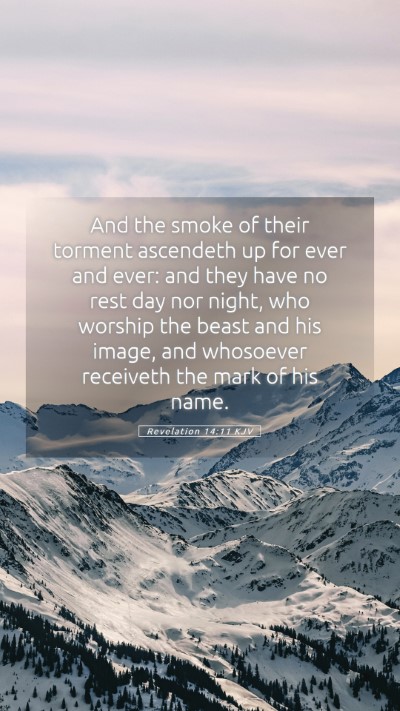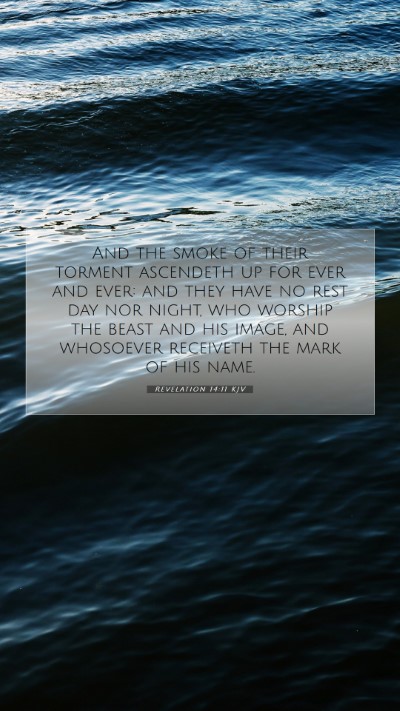Bible Verse Commentary on Revelation 14:11
Verse Text: "And the smoke of their torment ascendeth up for ever and ever: and they have no rest day nor night, who worship the beast and his image, and whosoever receiveth the mark of his name."
Summary of Biblical Meaning
Revelation 14:11 serves as a stern reminder of the consequences of turning away from God and the grave repercussions of idolatry, especially in the context of apocalyptic literature. This verse illustrates the eternal torment awaiting those who worship the beast and take his mark, emphasizing the seriousness of allegiance to Christ over worldly powers.
Insights from Public Domain Commentaries
Matthew Henry's Commentary
Matthew Henry interprets this verse as depicting the eternal punishment of the wicked. He emphasizes that the "smoke of their torment" represents a continuous and ceaseless suffering, indicating God’s justice. Henry notes that there is no respite for those who worship the beast, an allusion to the ultimate and irreversible consequence of choosing allegiance to evil over righteousness.
Albert Barnes' Commentary
Albert Barnes elaborates on the symbolism in the verse, stating that the "smoke of their torment" signifies the anguish of the soul that endures separated from God eternally. Barnes points out that the phrase "no rest day nor night" reflects a state of unending distress. He interprets the imagery within the broader context of divine judgment, warning readers about the eternal consequences of their choices.
Adam Clarke's Commentary
Adam Clarke provides insights into the cultural and historical background of this passage. He suggests that the "mark of the beast" symbolizes allegiance to worldly powers and systems contrary to God’s kingdom. Clarke emphasizes the profound implications of such a choice and the eternal ramifications it holds for the believer or non-believer alike. He alerts readers to the dire nature of being marked by the beast, as it signifies a conscious choice against divine authority.
Bible Study Insights
Through Revelation 14:11, Christians are urged to reflect on their spiritual commitments and the ultimate outcomes of their choices. The stark dualism between the fate of the faithful and the unfaithful serves as a critical theme in studying end-time prophecies and can guide discussions in Bible study groups or online forums.
Application to Daily Life
This verse encourages believers to assess their own lives in the light of Christ’s teachings. It calls for an examination of what we prioritize and worship in our daily lives. The deterrent of eternal torment should inspire a deep commitment to follow God, veering away from the distractions and allurements of the world.
Cross References
- Revelation 20:10 - The final judgment of the devil and his followers.
- Matthew 25:46 - The eternal punishment and reward based on one's actions.
- 2 Thessalonians 1:9 - Describing eternal separation from the presence of the Lord.
- Mark 9:48 - The unquenchable fire where the worm does not die.
- Revelation 21:8 - The fate of the cowardly, the unbelieving, the vile.
Conclusion
In studying Revelation 14:11, we uncover profound biblical truths about judgment, justice, and the eternal state of the soul. This verse stands as a warning and an invitation for deep reflection on our lives, urging all to seek genuine fellowship with God and steer clear of the paths that lead to destruction. By understanding Scripture in its historical and spiritual context, we can better navigate our faith journey and encourage others in Bible study settings.
For further understanding of Bible verse meanings and interpretations, consider utilizing various Bible study tools and resources that explore Scripture analysis and biblical exegesis.


